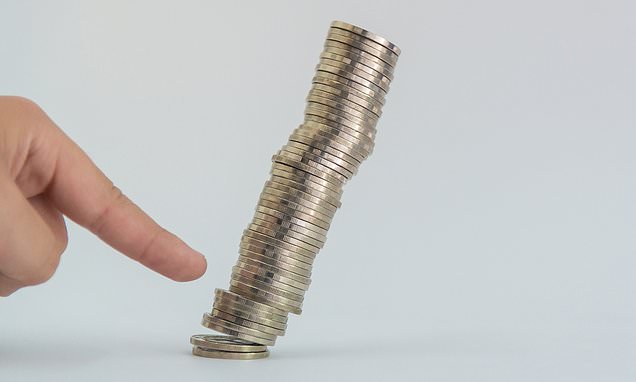
In this series, we bust the jargon and explain a popular investing term or theme. Here it’s the Minsky Moment.
What on earth is this?
The late US economist Hyman Minsky argued that stability in financial markets leads eventually to extreme instability.
Private and institutional investors become complacent, taking on more debt, until they are unable to service these borrowings from their revenues and have to sell even their least speculative holdings. This demand for cash drives down share prices, leading to the bursting of the bubble.
Minsky set out his thesis in the 1993 paper The Financial Instability Hypothesis, but the phrase ‘Minsky Moment’ was coined during the Russian debt crisis of 1998 by Paul McCulley, chief economist at fund management group Pimco.
When was the term widely used?
In 2007 as the US sub-prime mortgage scandal emerged, triggering the global financial crisis. Bankers, brokers and columnists started using ‘Minsky Moment’ a lot as they tried to explain market turmoil.
Minsky, who died in 1996, was an obscure figure during his lifetime. But the global financial crisis made him posthumously famous. The Economist magazine even argues that Minsky Moment has become synonymous with financial crisis.
Why are we hearing it now?
People are asking whether China may be close to a Minsky Moment after the spiralling increase in debt, particularly in the property sector.
Growth is slowing in all sectors and there is said to be a ‘temperature difference’ between the official numbers and the true state of affairs.
Inflation may be a problem in the UK, the US and elsewhere, but there are signs of deflationary pressures in China.
What’s gone wrong in the property sector?
Residential developers have been hit by restrictions on lending, lower house prices and sluggish demand. Evergrande is battling with debts of more than $300bn on which it has missed interest payments.
Country Garden has also missed interest payments. These issues are one of the reasons why the giant asset manager Zhongrong has not been able to pay out either interest or the maturity proceeds of investments to clients. Zhongrong is part of China’s shadow banking sector, providing finance to developers in a strategy that provided bumper returns when property values were rising.
Related Articles
HOW THIS IS MONEY CAN HELP
Is China worried?
In 2019, the former governor of the Bank of China Zhou Xiaochuan warned that the mountain of debt threatened a Minsky Moment. But it is not known whether this term from the decadent West was heard during the planning of the measures taken in the past week by the Beijing regime.
These include an interest rate cut and lowering the tax on stock market trading to revive the market. Investors want more, however, starting with a massive government spending programme.
What would Minsky have said?
Minsky’s thesis related to the trajectory of events in capitalist economies with mature financial systems. It is not clear whether his thinking applies to socialist states moving towards a market economy.
But it is likely he would have thought China’s problems posed a threat globally, since it is the world’s second largest economy.
Some links in this article may be affiliate links. If you click on them we may earn a small commission. That helps us fund This Is Money, and keep it free to use. We do not write articles to promote products. We do not allow any commercial relationship to affect our editorial independence.






